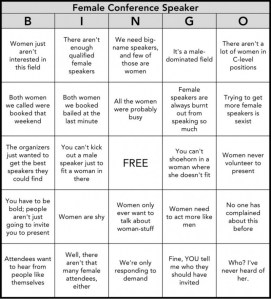Before I begin. I just want to apologize for getting this post up late. Travelling always takes a lot out of me, especially when travelling on train.
This past weekend, I went to the second annual Muslim Alliance in North America (MANA) conference in Philadelphia. I did a lot of vending with my husband this time around, so I didn’t get a chance to go to as many workshops. However, I did manage to get into a couple. One thing that struck me about a couple of the workshops is that they both had “unveiling” in the title of workshops relating to women. One was actually a play about Muslim women (which I attended and will discuss in more detail later) and the other was titled “Unveiling The Truth” (which I did not attend). The latter workshop was for sisters only and in the program booklet, the summary is as follows: “All the Questions you’ve ever had about relationships, your rights and your body and were too afraid to ask.” I was surprised at the references to “unveiling” since they carry such Orientalist overtones. I know that “unveiling” could simply refer to getting to the essence of something but considering male fantasies about undressing Muslim women, “unveiling” Muslim women always carries a lot of connotations.
The play I saw “Unveiled: the Life of Muslim Women” relied heavily on this metaphor. The play wasn’t listed in the program booklet, but was announced on loudspeakers. As I walked to the room where the play was being held, I saw a sign advertising it and read in the description that it was about women in hijab. At this moment I became disappointed because I felt that once again, Muslim women were being described as women who cover only. I decided to go anyway. I thought, “well, maybe the writers thought ‘women in hijab need to be portrayed in more nuanced ways.'” As I went in, the play was already in session and two women were in the middle of sketch. One woman was speaking about not being oppressed because she wears hijab. The next woman in the sketch spoke what appeared to be a poem that had all of the cliched defenses of hijab: how hijab makes her feel protected and lets men know her worth, how she doesn’t have to worry about her body image or succumb to eating disorders because of her hijab, etc. The eating disorder part really disappointed me, because there are Muslimahs with eating disorders and Muslimahs who deal with body image issues. Also, I just felt like, “Can’t we defend women’s right to wear hijab without accusing non-Muslims of being shallow, body-obsessesed maniacs and without making it seem that hijab makes you into super woman!?”
While that sketch left me a bit sour, I did like some others. One sketch was based on a story by Mohja Kahf and featured a Syrian woman who has just immigrated to the U.S. and longs for home. She finds bit of home in the most unlikely of people: a group of hippie women and one man who embrace all religions, burn incense, and eat hummus. It was humorous, it was personal, and by the end of the sketch, I felt good, too. Another sketch that I found poignant was a sketch called “Secrets,” where four women speak about having to keep silent about domestic violence, the stress of being a stay-at-home mom, and feelings about being a co-wife. You could feel the pain of women who felt that they had no outlet for their grievances. I especially liked this sketch because it focused on how Muslim women are often forced to not to speak on legitimate concerns and forced to maintain a facade while bottling up emotional pain.
The rest of the conference seemed to run smoothly. However, there did seem to be more gender segregation at this conference than at last year’s conference. For instance, some of the security team tried to keep men and women segregated outside the ballroom where the jumu’ah salat was made. Additionally, a partition was set up in the main prayer area on the second day of the conference, even though it wasn’t there on the first day. I’m not sure why this occurred. I would imagine that some complaints were made to MANA by men and women who weren’t comfortable with a partition not being set up. However, it did make me feel uncomfortable and I will write to MANA expressing my concern on this issue.











